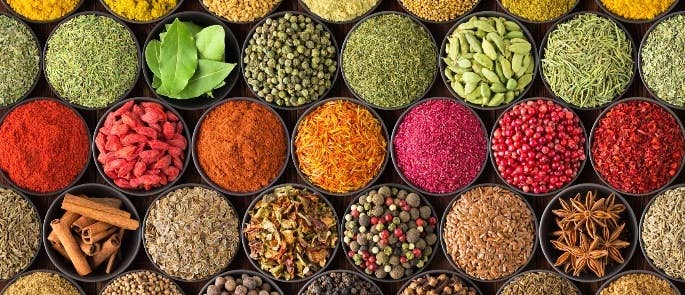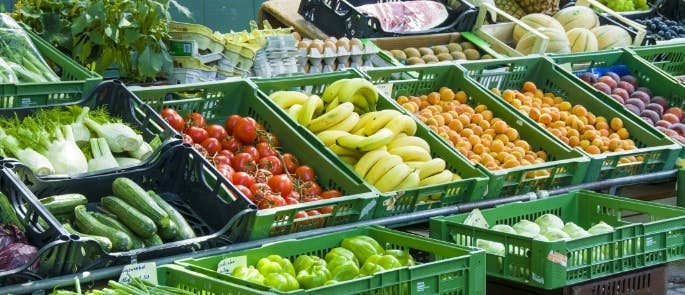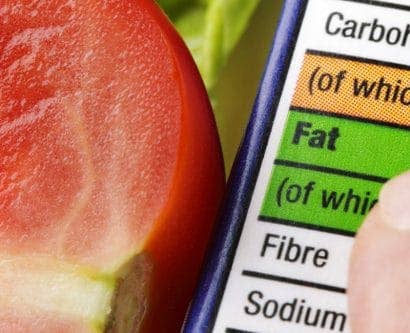Will Millennials Finally Challenge the Food Fraud Epidemic?
We know that food fraud is an international problem. It costs the global food and drink industry billions, impacts both large and small businesses, and poses a serious health risk to consumers.
Food fraud is not a new thing. However, the motivation to commit food fraud is always on the rise, with new ways constantly being sought to adulterate food and reap financial gain.
With food fraud set to continue and grow, what can we implement to stop it? How can we ensure that fraudulent foods are not making their way into our businesses and homes? Well, we might not have to look too far. What if we could adopt some simple values and attitudes that might help the fight against food fraud?
What’s the State of Food Traceability in 2019?
As stated by the IFIC (International Food Information Council Foundation), food traceability is one of the top five food trends of 2019. They declare that:
“Consumers want to know how their food is produced, where it came from and the quality of the ingredients. They also have broader questions about environmental sustainability, and many seek brands that align with their broader social values.”
Of particular importance here is the fact that consumers want to know ‘the quality of the ingredients’ in their food, ‘how their food is produced’, and how it aligns ‘with their broader social values.’
If people are indeed concerned with these factors, then this provides hope about the future of food fraud. It indicates that, over the coming years, people will be asking more and more questions about their food. This inquisitive attitude might lead to food fraud becoming easier to detect, which could eventually put an end to it.

 What Do Millennials Value?
What Do Millennials Value?
The term ‘millennials’ roughly encompasses people born between the late 1980s and 2000. They are currently the largest age demographic, which means that what they value is incredibly important. If they are asking an increased number of questions about their food, then this can have a colossal impact on the future of food fraud.
Many people believe that millennials are changing the way we eat, with emphasis on new diets and eating preferences.
In terms of food, millennials value:
Transparency and truth. Millennials want food manufacturers to be honest with them. This means that they must be transparent with their ingredients and sources if they are to retain customers and business. Millennials are also concerned with how their food is made and the effect it will have on their health, making nutritional labels on all food essential.
Ease and convenience. This value doesn’t necessarily mean that millennials would rather drive to their local fast food establishment than cook a meal at home. Instead, they would rather cook in a quick and convenient way. This desire is responsible for the emergence of food recipe boxes, like Hello Fresh, online grocery shopping, and healthy ready meal options.
Healthy, but not as we know it. ‘Healthy’ isn’t necessarily thought of as being high-fibre, low-fat foods anymore. Instead, millennials deem food to be healthy if it’s organic, natural, local, and sustainable. Furthermore, millennials are invested in the protein content in their food and how this works with their lifestyle, diet, and exercise regimes.
The planet. Millennials are particularly interested in how their food is sourced and grown. They are concerned about sustainability and the environmental impact of their food. Many now buy their food locally to reduce the travel miles of their food and support local businesses.
Ethical practices. Millennials are showing an increasing desire for more ethical practices. Statistics from The Vegan Society state that the demand for meat-free food increased by 987% in 2017 alone. In 2018, the UK launched more vegan products than any other nation and the number of vegans in Britain quadrupled between 2014 and 2018.
Variety. Millennials aren’t afraid to try new things and experiment with new flavours, both when cooking and dining out. They will happily try out different cuisines and eat at new restaurants.


Do you know which foods are susceptible to fraudulent activity? Would you recognise food that had been substituted, adulterated or misrepresented?
Take a look at What is Food Fraud to find out more.
Will These Values Make It Easier or Harder to Identify Food Fraud?
Food fraud happens when there is a vulnerability in the supply chain. This is usually when there’s an opportunity to commit the fraud, and there is a motivation to do so, but the risk of being caught is low.
The food values of millennials that we’ve seen may affect the capability for food fraud to be committed. However, it isn’t yet clear if these values will make food fraud easier or harder to detect.
Millennials, on the whole, are much more likely to check the labels of food products than their predecessors. Checking for nutritional information, specialist diet information, allergens, ingredients, and food sources – like local and organic – is a common activity for millennials when deciding what food to buy and try.
Will Food Fraud Be Easier to Detect?
On one hand, this would make it easier to detect food fraud as there will be a greater pressure on food ingredient lists and transparency. Furthermore, buying locally would theoretically reduce the supply chain and therefore reduce the number of stages that food fraud can be committed at.
Millennials are asking an increased number of questions about where their food is coming from, what it contains, and the ethical practices behind it. This desire for knowledge about their food creates a demand for manufacturers to answer more questions on the food they produce. It also means that manufacturers need to ask their suppliers more questions. In turn, this increased questioning will make it harder for fraudsters to conceal their actions and put pressure on the whole supply chain for transparency.
Finally, we’ve seen that there are an increasing number of people choosing to follow a vegan lifestyle. This means that some of the most fraudulent products, like milk, honey, and fish, will have a decreasing demand, which can help to limit the amount of food fraud on these products.

Will Food Fraud Be Harder to Detect?
On the other hand, the trend towards newer diets like veganism cannot put an end to food fraud. We already know that olive oil is the most common fraudulent food. Additionally, if people are moving to more ethical foods, such as non-dairy milk alternatives rather than cow’s milk, then does this mean that these foods will begin to be susceptible to fraud?
Increased questioning and awareness about food fraud may result in fraudsters using alternative methods to conceal their ways. Let us not forget that food crime is an international network. Even if people are wise to food fraud and have detection methods, the fraudsters will likely still find a way to commit it if there is a strong enough motivation. This may lead to newer types of food fraud that we aren’t aware of yet.

What foods will be frauded in the future?
The values of millennials may mean that newer foods are frauded to meet the demand. For example:
- If millennials enjoy variety and trying new flavours, does this mean that more spices will be frauded?
- Does an increase in the number of vegans mean that things will be labelled as such even if they’re not?
- Will there be a rise in foods that claim to be ‘organic’ but are not?
- Are a number of products going to claim they’re packed full of protein, when in fact they contain a dangerous substance to artificially raise this amount?
It’s fair to assume that, in future, food fraud will extend to new products in order to meet the demand of consumers. This means that foods are likely to be mislabelled if people are looking for a product to have a specific requirements or properties. We may, therefore, see a dramatic increase in a particular type of food fraud: mislabelling.

 Will Millennials’ Values Challenge Food Fraud?
Will Millennials’ Values Challenge Food Fraud?
Whilst we’re currently unsure about whether food fraud will be easier or harder to detect, or whether it will take new avenues, the values of millennials will certainly challenge the food fraud industry one way or another.
If millennials want food that is local and homegrown, then there will be a greater demand on farmers and new farming methods are likely to be sought. In fact, furniture giant IKEA have introduced this idea already with their take on urban farming.
Case Study – IKEA and Tom Dixon: Gardening Will Save The World
At 2019’s Chelsea Flower Show, IKEA documented their vision of the future of urban farming. They teamed up with designer Tom Dixon to design an experimental model for growing plants in an urban environment. Their idea was that ‘Gardening Will Save The World’.
Their garden design was divided into two levels. The base garden comprised of a horticultural laboratory that uses hydroponic technology to grow edibles. The raised garden featured a selection of plants to encourage visitors to emerge themselves in the power of the garden.
The concept behind the garden is using technology and maximising space in order to bring gardening to people who don’t have gardens. This means that even those who live in a studio flat can grow their own vegetables through a series of artificial intelligence.
Whilst the garden for IKEA was conceived by academics, there are thoughts that 3D printing could make this type of urban farming a thing of the future. It highlights the potential for everyday urban farms as well as considering the future of the environment and the importance of growing food locally.
What Does This Mean?
Steps such as urban farming showcase the idea of newer food production methods. If we can grow vegetables in a spare bedroom or kitchen cupboard, then what else will we be able to grow and develop in future? And, if we rely on our own methods for manufacturing food of different food groups, such as dairy products, will this put an end to food fraud in these particular groups?

We cannot guess what the future holds or know exactly what will come of food fraud. However, it is fair to predict that food fraud, and food crime on the whole, will take a different route. Millennials place an ever-growing importance on ingredient lists, transparency, sustainability, labels, and more ethical practices. Therefore, while we cannot say they will put an end to food fraud, they will certainly challenge it and force it to take on new methods and alternatives.











